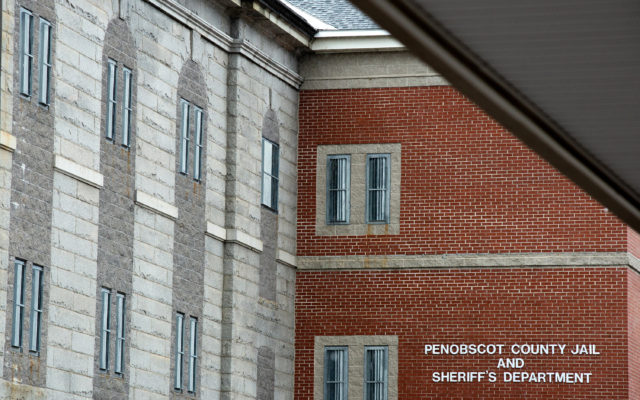
Penobscot County will have a mental health specialist ride along with sheriff’s deputies
By Judy Harrison, Bangor Daily News Staff
A $750,000 federal grant will allow the Penobscot County Sheriff’s Office to have a mental health clinician ride along with sheriff’s deputies and check in with people after their release from the Penobscot County Jail.
It’s one of a handful of measures the U.S. Department of Justice grant will fund to improve services for people living with mental illness — both jail inmates and those outside.
Penobscot County was one of 29 cities, counties and health departments across the country to receive the grant. It was the only recipient in Maine.
In addition to funding a mental health clinician, the three-year grant will allow the county to hire two peer support specialists to work with inmates with mental health conditions and provide training for all deputies and corrections officers on how to identify, understand and respond to signs of mental illnesses and substance use disorders.
The sheriff’s office will work with Community Health and Counseling Services to deploy a clinician who rides along with deputies. The Maine chapter of the National Alliance on Mental Illness will train the peer support specialists and sheriff’s office staff.
“Not only does this project look to better support individuals once they are incarcerated, it also intends to divert people from criminal justice system involvement by implementing a mental health specialty team of a seasoned patrol deputy and a licensed mental health clinician,” Morton said of the ride-along program.
The Bangor Police Department has had a similar program for more than four years through a partnership with Northern Light Acadia Hospital, according to Sgt. Wade Betters.
The goal of the partnership is to divert those who are in crisis away from a hospital emergency room and the county jail so they can remain in the community and connect with the services they need, he said.
“Since our liaisons are in the patrol cars, they are an immediate ‘in the moment’ resource for the officers,” Betters said. “Our case workers are very knowledgeable, and are quick to make recommendations and also help the officers in their attempts to de-escalate situations or bring calm to a challenging or volatile situation.”
The hospital picks up the cost of one position in Bangor. The city pays for the other case worker, budgeted at $72,000 per year, Betters said.
In addition to answering calls with deputies, Morton said, the sheriff’s office clinician would reach out to people with a known mental illness to check on their wellbeing.
“Too often there is little engagement with this population of individuals until they are elevated to a higher level of risk and law enforcement is called to protect the public,” the sheriff said.
The peer support program will help female inmates, according to the grant application. The specialists will be people who have experienced mental illness, substance use disorder and trauma themselves. They have “a unique capacity to support each other based on these shared experiences,” according to Penobscot County’s grant application.
Mental Health First Aid is the course deputies and corrections officers will take to learn how to identify, understand and respond to signs of mental illnesses and substance use disorders. The training gives people the skills to reach out and provide initial help to someone who may be developing a mental health or substance use problem, or experiencing a crisis.
This year is a planning year for the project, and it will be fully implemented next year, Morton said.
While the funds will help with the sheriff’s office’s response to mental health problems, Morton said, the grant doesn’t address a shortage of inpatient hospital beds for those who need mental health treatment.
“Because of the lack of resources, hospitals and jails often find themselves attempting to manage those struggling with mental illness,” he said.